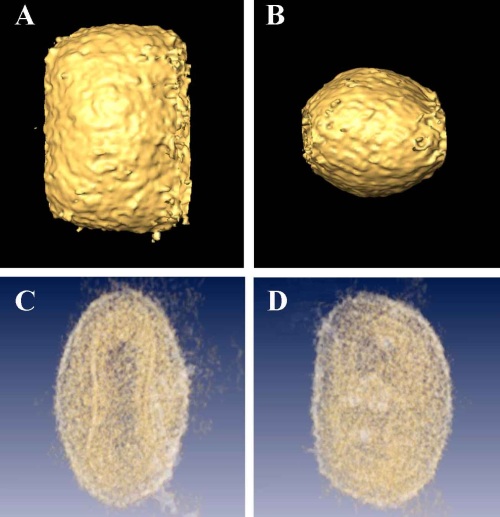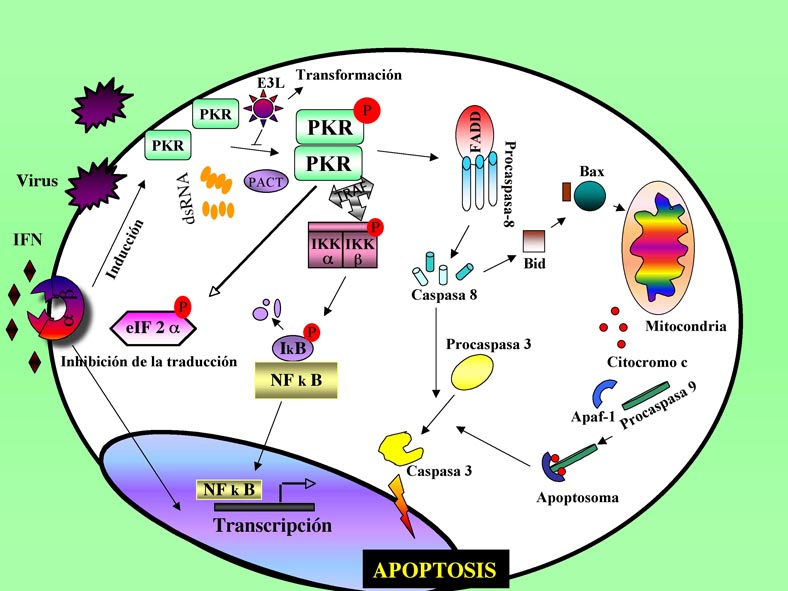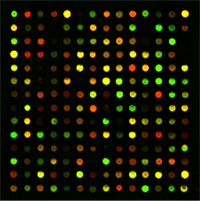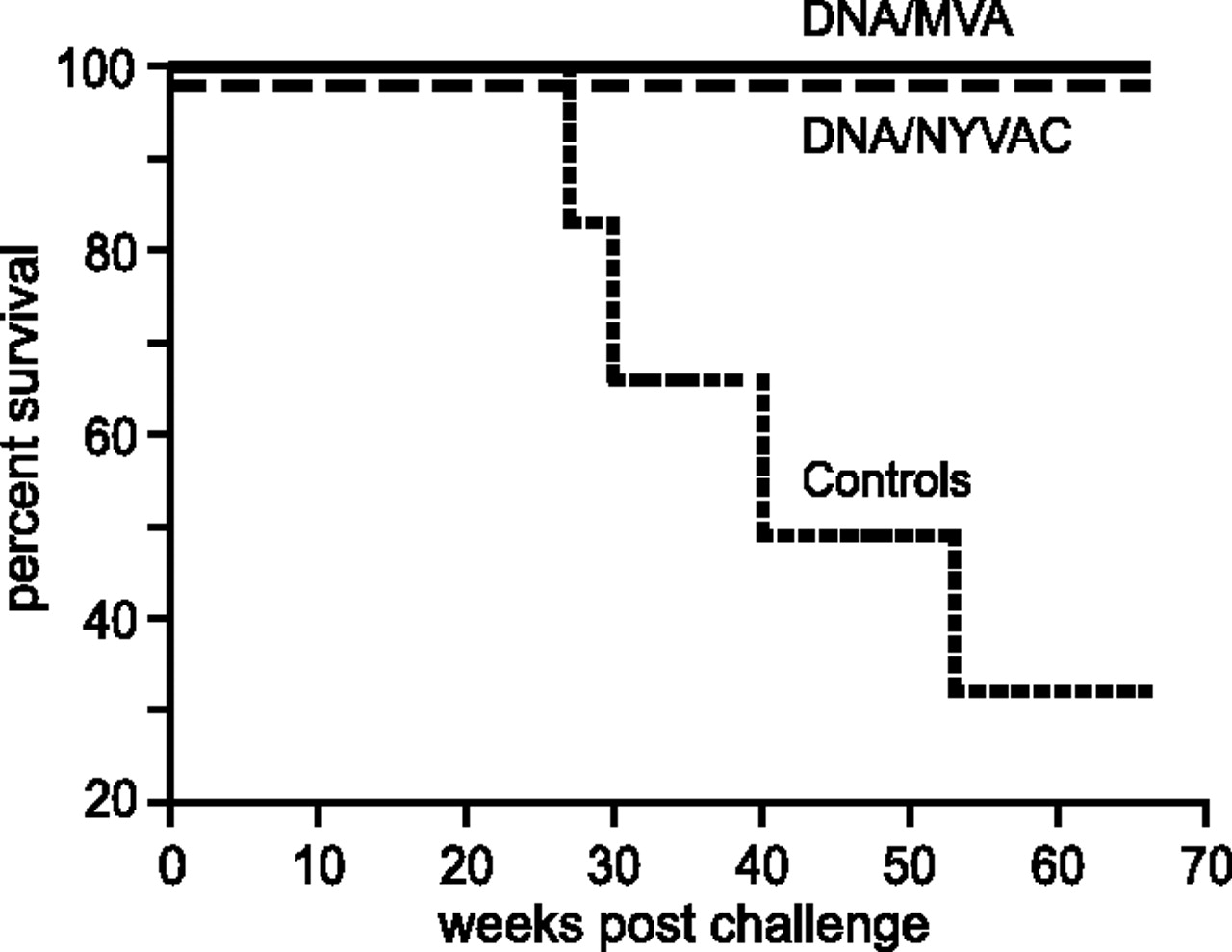| Home |
| Research |
| Collaborations |
| Publications |
| People |
| Lab pictures |
| News |
| Contact us |
|
The main objectives of our laboratory are geared to understand molecular basis in the pathogenesis of infectious agents and their interaction with the host, as well as to use this knowledge in the development of vaccines that might be effective against diseases like HIV/AIDS, malaria, leishmaniasis, hepatitis C and cancer. As a model system of infectious agent and as a delivery vector for expression of genes of interest we use vaccinia virus (VV), a member of the poxvirus family. |
|
1. Vaccinia virus assembly 
VV assembly is a complex process in which more than one hundred proteins participate, and by studying this process we might also provide important insights in cell biology. Our objectives are to understand, at the molecular and cellular levels, how viral membranes and cores are formed, and what are the viral proteins involved in these events that lead to virion assembly and generation of infectious forms. |
|
2. Mechanism of antiviral and anticellular action of interferons 
For years, our laboratory has been investigating the mechanism of action of interferons (IFN), since these molecules play major roles as a first-line host defense against viral infections, tumor cell growth and regulation of the immune system. We have provided important insights into the mechanism of apoptosis action by the IFN-induced ds-RNA dependent protein kinase (PKR), and we have identified the inhibitory effects exerted over PKR by some viral genes. We are studying further how PKR exerts the antiviral, antitumoral and immunoregulatory functions, as well as the role of other IFN-induced proteins, like RNase L, 2-5A synthetase and ISG15. |
|
3. Virus-host cell interactions 
How poxviruses alter host cell responses following virus infection is a poorly characterized process. Our objective is to know the impact of vaccinia virus on host cell gene expression profiling in order to identify cellular genes relevant for VV replication as well as for host cell defense, and to develop cell culture and animal models for functional gene studies. To this aim, we have used microarrays to identify cellular genes specifically induced in the course of virus infection using virulent and attenuated VV strains with potential as human vaccines. |
|
4. Development of vaccines against AIDS, malaria, leishmaniasis, hepatitis C and cancer 
Our laboratory has been developing immunization strategies against HIV, malaria and leishmania based on the use of VV recombinants. We have pioneered the development of protocols based on heterologous immunization approaches (prime/booster) with vectors that induced enhanced cellular immune responses, leading to protection in murine models against malaria (Plasmodium yoelii) and leishmania (L. major and L. infantum). In collaboration with the Primate Center in Holland we have extended those observations to non-human primates and shown enhanced protection against a pathogenic SHIV89.6p virus by a DNA/Pox virus boost immunization approach. In collaboration with EuroVacc we have participated in a phase I clinical trial where a DNA/Pox combination has shown immunogenicity in over 90% of vaccinees. Our future studies are directed to improve the immunogenicity of the poxvirus vectors by genetic manipulation, in particular the genome of the attenuated vectors MVA and NYVAC, and to translate these vectors to clinical trials. These studies have defined immunological parameters to expand CD8+ T cells during primary and secondary immunizations, with significance in the development of prophylactic and therapeutic vaccines against infectious agents and tumor diseases. |
Copyright © 2009 Centro Nacional de Biotecnología, Consejo Superior de Investigaciones Científicas